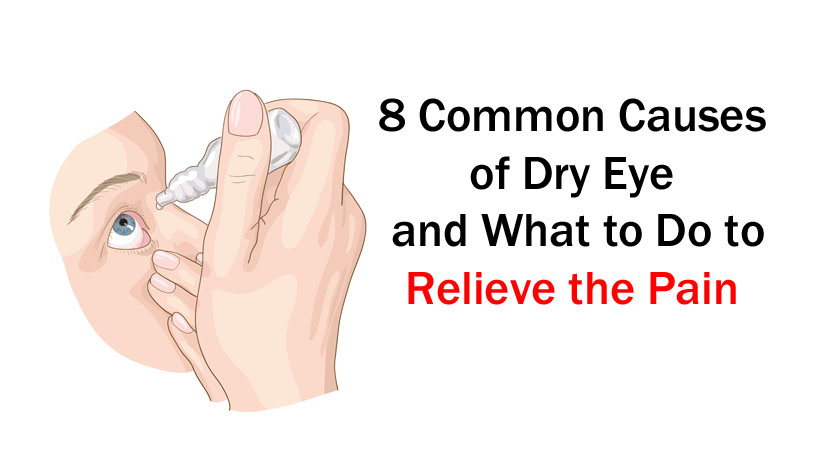Dry eye syndrome is a condition in which a person lacks enough tears to lubricate and sustain the eyes. This can become a problem because we need the wetness from tears to maintain clear vision and healthy surfaces of the eyes.
The condition is common and often chronic, particularly in older adults. A recent online poll revealed that nearly half (48 percent) of Americans age 18 and older regularly experience symptoms of dry eye.
Common symptoms can include burning, itchiness, aching, heaviness, soreness, redness and dryness in the eyes. Some patients report difficulties in keeping their eyes open, increased sensitivities to light and blurred vision.
If you find that you can’t stop rubbing your eyes, look through our list below to learn the common causes of dry eye syndrome. Once you understand the reason behind the discomfort, you may be able to make easy lifestyle adjustments to relieve the pain.
Gender
Due to hormonal changes caused by pregnancy, the use of oral contraceptives and menopause, women are more likely to develop dry eyes than men. Once your hormones are balanced again, your eyes should begin to feel better.
Age
Dry eyes are natural and to be expected as you age. In fact, the majority of people over the age of 65 will experience some symptoms of dry eyes. Although unavoidable, the good news is that artificial tears can work wonders to relieve your symptoms.
Medications
Certain medicines, including antihistamines, decongestants, blood pressure medications and antidepressants, can reduce tear production in the eyes. Talk to your doctor if you think your medications are to blame for your symptoms; he or she may recommend a change in daily regimen.
Medical conditions
People with rheumatoid arthritis, diabetes and thyroid problems are more likely than others to have symptoms of dry eyes. Inflammation of the eyelids and of the surfaces of the eye, or the inward or outward turning of eyelids, can also cause dryness.
Outdoor climate
Exposure to smoke, pollution, wind and dry climates can all increase tear evaporation and cause dry eye symptoms.
Indoor environmental conditions
Air conditioning, ceiling fans and some heaters can decrease indoor moisture and cause wetness to evaporate from the eyes.
Staring at a computer or a book
Forgetting to blink regularly, which can occur when you stare at computer screens or small print for prolonged periods of time, can contribute to eye dryness.
Contact lenses and eye surgeries
Long-term use of contact lenses can instigate dryness in the eyes. Refractive eye surgeries to repair vision problems, such as LASIK eye surgery, can also decrease tear production and contribute to dry eyes.
If you take away any advice from this article, let it be this: Remember to blink regularly, to aim for humid conditions when they’re possible to control, to wear sunglasses outside, to take nutritional supplements with fatty acids and to avoid becoming dehydrated by drinking plenty of water.
Sources:
https://www.aoa.org/patients-and-public/eye-and-vision-problems/glossary-of-eye-and-vision-conditions/dry-eye
https://www.allaboutvision.com/conditions/dryeye-syndrome.htm



